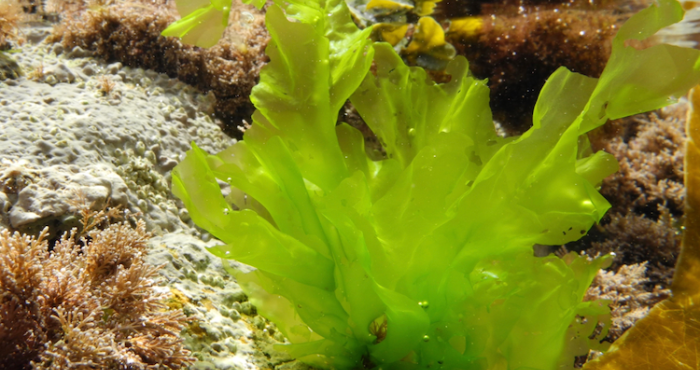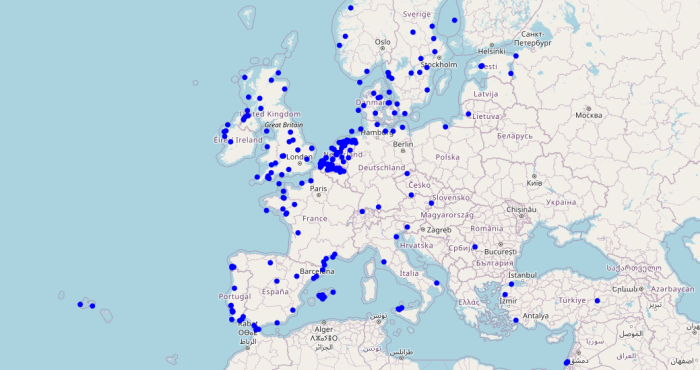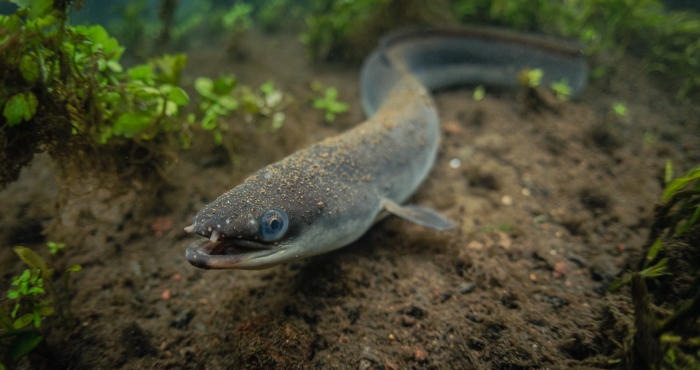LifeWatch thesis wins Best Thesis award
Clyde Blanco was awarded the Best Thesis (out of 98) of the 2018-2020 cohort in The International Master of Science in Marine Biological Resources (IMBRSea) program.
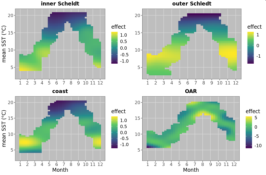
The thesis investigated how the spatiotemporal distribution of Atlantic cod in the Belgian Part of the North Sea and Scheldt estuary changes with the seasonal variations in water temperature. Acoustic telemetry data from 2014-2018 was analyzed using Generalized Additive Models. Results showed that seasonal variations in water temperature indeed influenced where cod resided. During summer when waters were warmer (16-17°C), cod stayed in offshore artificial reefs especially near wind farms. In winter, they migrated and remained in colder waters (less than 15°C) in the coast and estuary. It is possible that this winter migration can be linked to breeding behaviors, but more studies are needed to prove this hypothesis. Insights in this study will have important implications in predicting Atlantic cod distribution in the future state of our warming seas.
Data gathering was supported by the Flemish contribution to LifeWatch.
You can find the full thesis here.
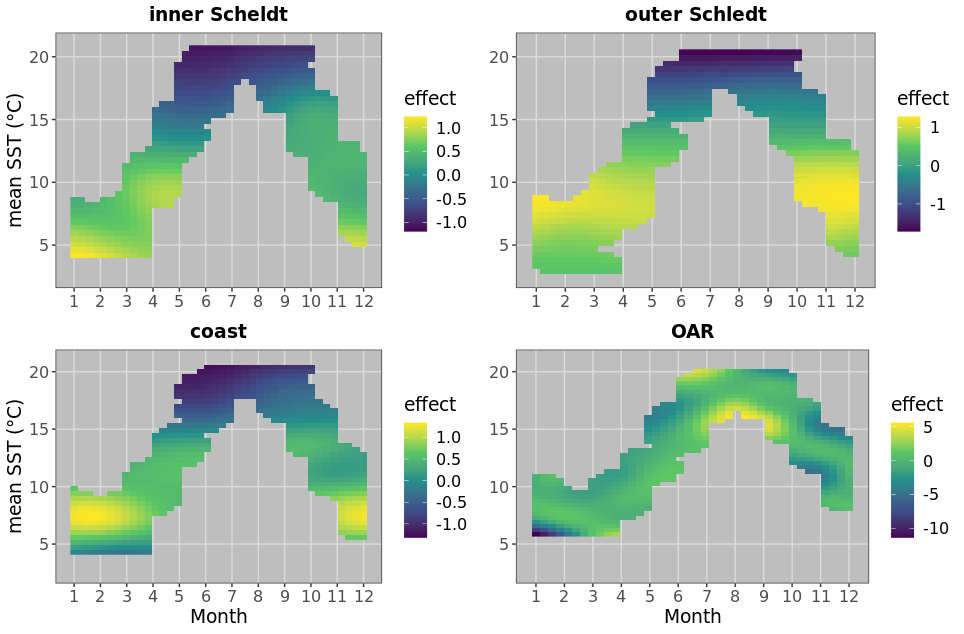
Fitted GAM showing the interaction of sea surface temperature (°C) and month (1-12) and its effect on the residency (expressed in log scale) of Atlantic cod at different sites. Yellow colour indicates high residency, green indicates moderate residency and violet shows low residency. Each plot has a different scale limits to reveal seasonal pattern within a site. The effect of mean SST and month was not significant in the offshore site; therefore, not included here. (Blanco, 2020; Figure 5)
Data gathering was supported by the Flemish contribution to LifeWatch.
You can find the full thesis here.

Fitted GAM showing the interaction of sea surface temperature (°C) and month (1-12) and its effect on the residency (expressed in log scale) of Atlantic cod at different sites. Yellow colour indicates high residency, green indicates moderate residency and violet shows low residency. Each plot has a different scale limits to reveal seasonal pattern within a site. The effect of mean SST and month was not significant in the offshore site; therefore, not included here. (Blanco, 2020; Figure 5)

